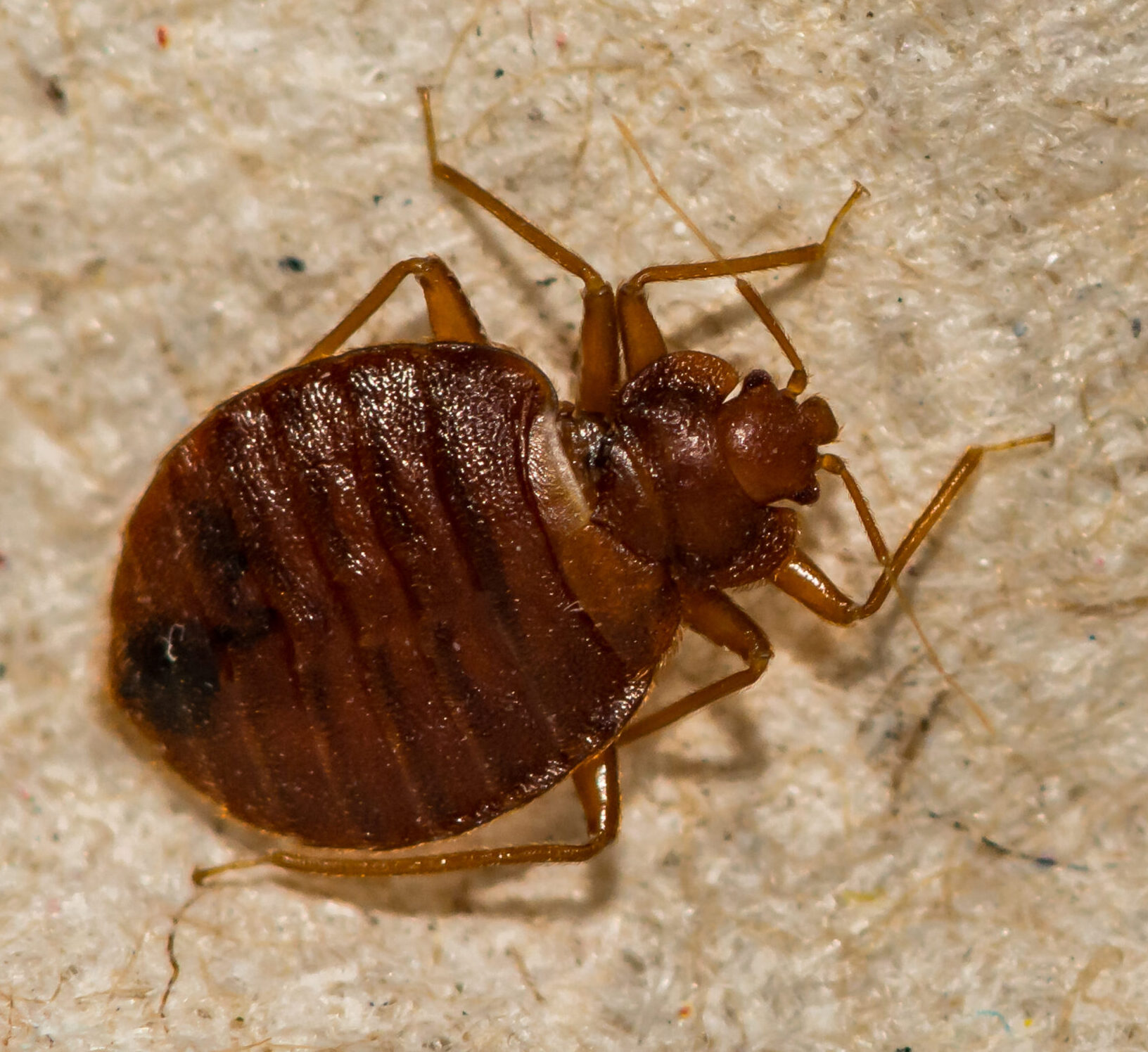
Bed Bugs
Bed bugs are reddish- brown small oval shaped flightless insects with six legs that are between 1 to 6 millimeters long. These insects feed primarily on human blood, but they have been known to survive on the blood of bats, birds, cats, dogs and rodents. Bed bugs are attracted to human odors, warmth transmitted by warm blooded animals, and carbon dioxide exhaled by their hosts. These insects spread easily and have shown resistant to pesticides.
What does a bed bug bite look like?
Unfortunately, identifying a bed bug bite from the bite alone is impossible even from a medical professional. For a bite to be confirmed as a bed bug bite, a bed bug must be found in the sleeping area of the person who has been bitten. The reason being is that some people that are bitten show no signs while others experience allergic reactions. These bites can mimic mosquito bites, allergic reactions from changes in laundry detergent, allergic reactions from new medications, etc. This is why we highly recommend not signing up to have your home treated for bed bugs unless bed bugs have been positively identified by a pest control professional. Bed bugs treatments can be very expensive and if the “bite” ends up being an allergic reaction to a new detergent, that money was just put down the drain.
Why Are Bed Bugs So Hard To Treat?
1. Bed bugs can go incredibly long times in between feedings. They have been known to survive in abandoned houses for up to a year and there are some reports that if living conditions are optimal, they can survive up to 18 months.
2. One single female bed bug can product thousands of bugs within a three-month span.
3. If a customer does not know how the bed bugs initially made their way into the home, there is a highly likelihood reinfestation will occur.
4. Most pest control treatments using chemicals need a direct treatment to the bed bug to eliminate them, these insects prefer tight hidden locations, and it takes an expert to identify all harborage areas. The more clutter in a home the less likely a treatment will be effective. Other treatments such as heat treatments and fumigations have pros and cons for each of them.
